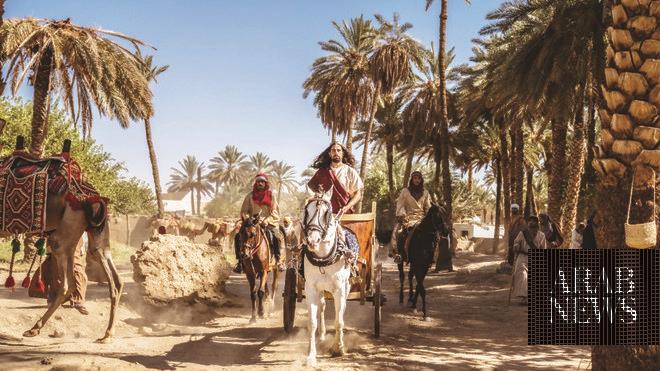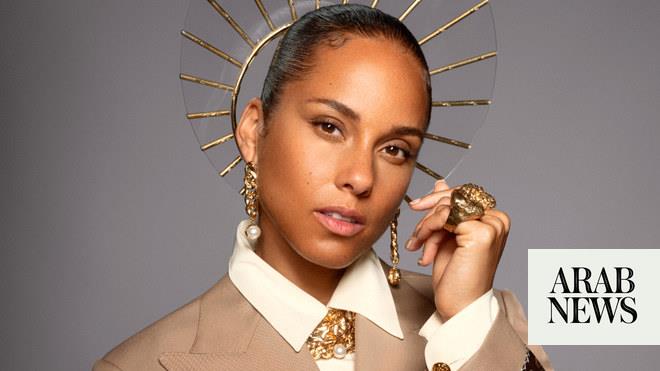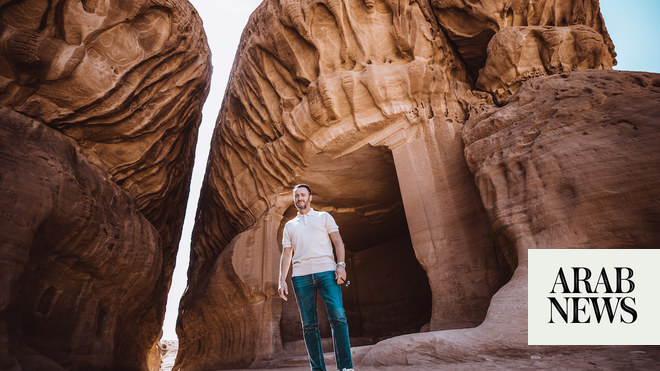
Author: Fri, 2020-02-21 01:28
RIYADH/PARIS: When French geological engineer Jean-Claude Lefevre visited AlUla in 1966, a young child gave him five old bronze coins, which he took back to France with him. Last Friday, Lefevre donated those coins to the Royal Commission for AlUla (RCU).
Lefevre said he was inspired to return the items after visiting the “AlUla — Wonder of Arabia” exhibition at the Institut du Monde Arabe (IMA) in Paris.
Lefevre was working with the Saudi Ministry of Petroleum and Mineral Resources when he visited AlUla more than 60 years ago. At the time, there were no laws protecting heritage sites in Saudi Arabia, so there is no suggestion that the French engineer did anything illegal. Today, however, the removal of artifacts from such sites is forbidden.
Lefevre contacted the RCU and met Abdulrahman Alsuhaibaini, the commission’s acting museum and exhibitions director, at the IMA on Feb. 14, when he handed over the coins. They will now be studied by RCU archaeologists to determine their origin and hopefully reveal new details of the ancient commercial crossroads at Hegra.
“We are very grateful to M. Lefevre for his contribution to the protection and preservation of our heritage,” Alshuhaibaini said. “It’s wonderful to know that the IMA exhibition — where we launched our cultural manifesto last October — has inspired such positive behavior and a growing recognition of the Royal Commission’s commitment to preserving and protecting heritage. The coins will now be cleaned and conserved before they can be read and studied.”
Hegra became Saudi Arabia’s first UNESCO World Heritage Site in 2008. Archaeological excavations at Hegra have discovered evidence of daily Nabataean life and rituals since regular excavations by a Saudi-French mission began in 2008. The excavations have also demonstrated that the Romans built an outpost at Hegra — the most southerly Roman settlement yet discovered.
“Most of the finds are pieces of pottery and sandstone sculptures. Even the smallest find can yield valuable information that sheds new light on ancient life,” said Alsuhaibaini. “Since these coins have been removed from their original context at Hegra, their scientific value (has been diminished), but once cleaned up they may yield important information about the Nabateans or the Romans.”
Saad Al-Matrafi, a spokesperson for the RCU, denied recent rumors about the discovery of gold in AlUla. “The video that has been circulating on social media is an old video that misrepresents the finding of small fragmented Lihyanite pottery statues in Um Al-Daraj, AlUla,” he said. “There is no gold in AlUla.”
The “AlUla — Wonders of Arabia” exhibition at the IMA runs until March 7.Main category: Saudi ArabiaTags: AlUlaLifestyleRoyal Commission for AlUlaJean-Claude LefevreInstitut du Monde Arabe (IMA)AlUla — Wonders of Arabia The French agency helping Saudi Arabia realize AlUla’s potential Saudi Arabias AlUla to be developed into world’s largest living museum












